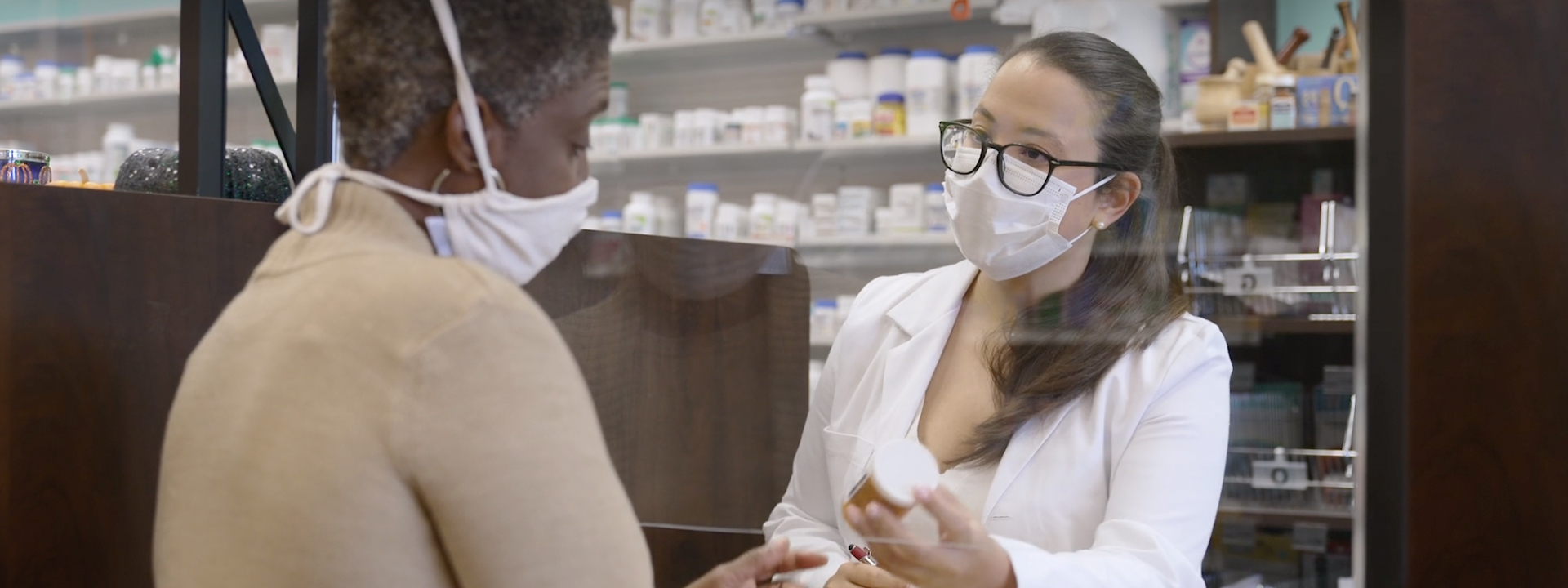We all know that specialty pharmacies support patients with complex and chronic conditions but what does the day-to-day look like for these pharmacists, and how might we improve it?
That’s what Cecelia Byers, PharmD, Specialty Pharmacy Clinical Product Manager with Surescripts and Sheila Arquette, RPh, President & CEO of the National Association of Specialty Pharmacy (NASP), discussed in the third episode of Surescripts’ Un-Scripted Podcast Series on the Pharmacy Podcast Network.
Byers and Arquette have devoted their careers to specialty pharmacy and process improvements that benefit patients. After listening to their personal experiences and professional insights in the field, here’s what stood out to me.
Specialty Pharmacists Need Better Access to Clinical Information
Specialty prescriptions usually need more clinical information than the average prescription, and because every disease state is different, the clinical data need is different. Specialty pharmacists use clinical information from body weight and height to more complicated information like the patient’s genotype to ensure that the proper medication is being prescribed.
But many specialty pharmacies still rely on manual communications like fax machines and phone calls to get this information – leading to inefficiencies and delays.
Fortunately, innovative health information technology solutions are emerging that automate and streamline the process, which help to get patients on their therapies more quickly. And new tools like Surescripts Specialty Medications Gateway allow specialty pharmacists to get clinical information independently.
Patients and Providers Need Specialty Pharmacists for Ongoing Care
Usually, the specialty medications journey isn’t over when the patient begins their treatment. Patients using specialty medications regularly need ongoing care, and specialty pharmacists serve an essential role helping patients understand that care. Patients might ask, “What's it going to do to them, how is it going to make them feel and when are they going to start to feel better?”
While she was a practicing specialty pharmacist, Byers recalled that she would receive phone calls on weekends from patients who had questions. “They weren't really sure about a side effect, or if it was a side effect, or they missed their dose or something happened, and just really being there for the patient when they need it.”
Additionally, specialty pharmacists play a crucial role in the care team for that patient. Beyond completing the initial prescription fill and ongoing patient care, specialty pharmacists are critical in relaying information back to prescribers so that the patient’s care team can understand how the patient is progressing on their therapy and if there are any red flags.
With these frequent touches for each patient, there are opportunities to improve how that information is transferred. Health IT tools that automate these communications can help free up specialty pharmacists to work with patients in a one-on-one interaction.
Specialty Pharmacy Is an Evolving Field
Specialty pharmacy is a rapidly changing and evolving industry. As Arquette pointed out, there are traditionally non-specialty disease states that could have specialty medications in the future. Take Alzheimer's disease, for example. There are injectable drugs in the pipeline to treat Alzheimer's, and that could ultimately fall to specialty pharmacies to dispense. Prescribers, like family practices, might not be used to the specialty workflow and will need to build out efficiencies and collaboration.
As the specialty pharmacy field and the players evolve, it’ll be essential to have that smooth transition of care. Patients who are used to just going to their neighborhood pharmacy to pick up their medications might now be prescribed a specialty medication, which will lead to a different experience that includes a larger care team. Technology undoubtedly will be essential in these rapidly evolving changes and in ensuring a successful, positive care experience.
Listen to the episode to learn more or visit Intelligence In Action to read more about remapping the specialty medication journey.


 Dean Riggott Photography
Surescripts
Dean Riggott Photography
Surescripts





